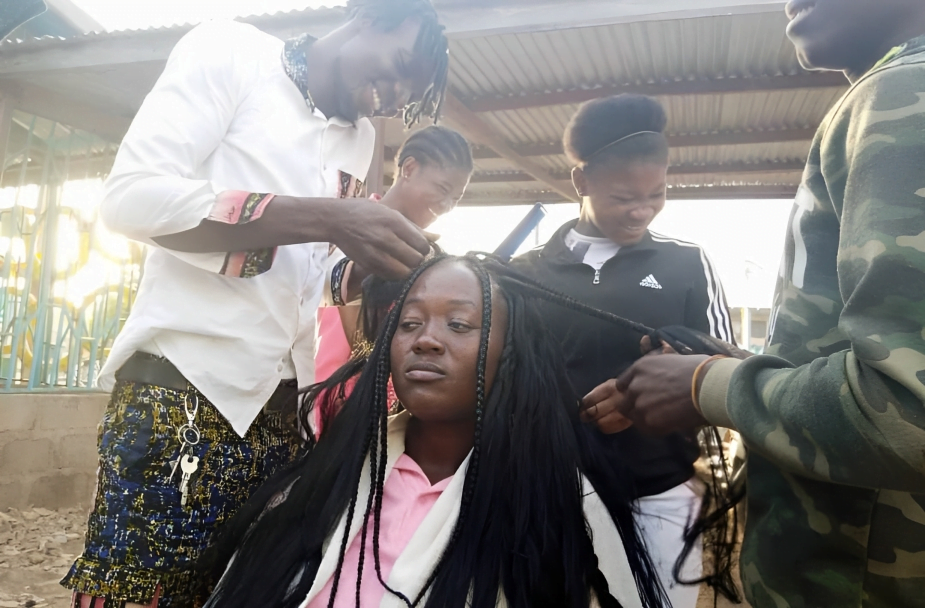Paul Azoo, a hairdresser and member of the Ghana Hairdresser and Beauticians Association in the Upper East Region, is unhappy about the state of the industry. Mr. Azoo, speaking with Mark Smith on A1 Radio’s Day Break Upper East Show, explained that because of the recent hike in utility prices, salon owners are unable to grow their businesses. Even making profits, according to Mr. Azoo, has become an extreme adventure.
“In fact, when you talk about utilities, for water bills, the service charge alone for the past 3 months, or Ghc 100, is in addition to what is read on the metre. In fact, in the last 3 months, I have been paying like GHC500, GHC600, and GHC300. That is for water alone. If we are going to talk about electricity, when you are going to buy power, you have to pay a service charge of GHC70 before you purchase what you want. In fact, our businesses are dying,” he lamented.
Mr. Azoo appealed to the government to subsidize the prices of services for hairdressers and beauticians so that they can remain profitable.
Meanwhile, hairdressers and beauticians in the Upper East Region of Ghana have expressed their concerns over the negative impact of YouTube on their businesses. According to Rebecca Golo, the President of the Upper East Regional Branch of the Ghana Hairdressers and Beauticians Association (GHABA), the industry is facing a significant decline in relevance due to the growing popularity of YouTube.
In an interview with Mark Smith on A1 Radio’s Day Break Upper East Show, Madam Golo explained that the extensive availability of hair-making tutorials and informative videos on YouTube has allowed individuals without any formal apprenticeship to acquire hairdressing skills.
This has led to a rise in individuals who can perform hairdressing services without having to go through the traditional route of joining associations or paying mandatory business levies.
One of the main concerns raised by Madam Golo is that these individuals can comfortably operate their businesses from the comfort of their own homes, without the overhead costs associated with running a physical salon. This creates a significant disadvantage for traditional salons that rely on foot traffic and community presence to attract customers.
Source: A1radioonline.com|101.1MHz|Mark Kwasi Ahumah Smith|Ghana


